May 29 stands as one of history’s most eventful days, witnessing the rise and fall of empires, groundbreaking discoveries, and moments that shaped our modern world across centuries of human achievement.
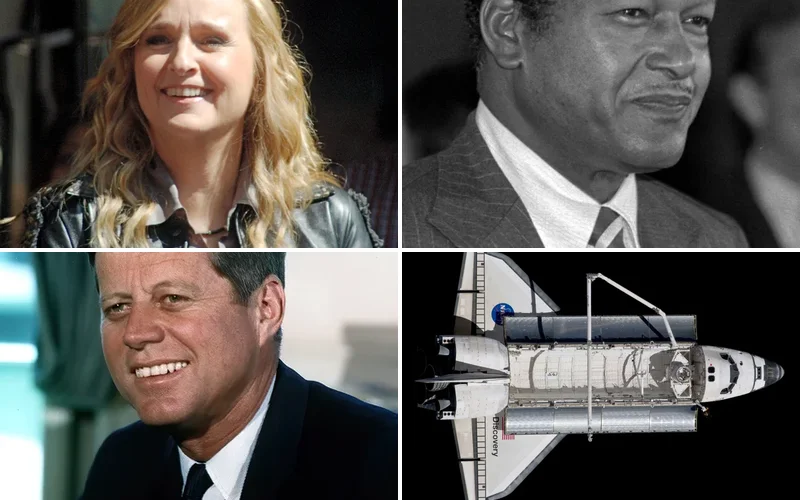
Politics and Government Events on May 29
1903 – Serbian Royal Assassination in May Coup
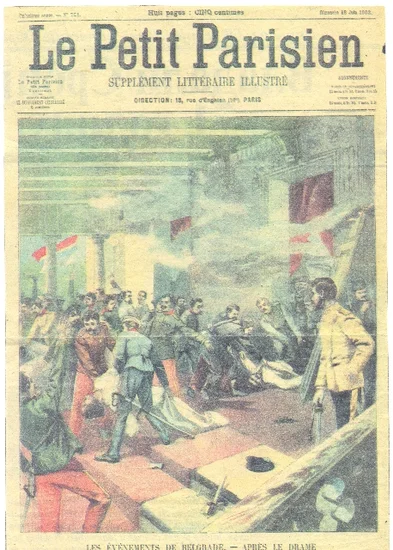
Alexander I, King of Serbia, and Queen Draga fell victim to assassination by the Black Hand organization in Belgrade. The brutal coup marked a dramatic turning point in Serbian politics and Balkan regional power.
This violent overthrow ended the Obrenović dynasty and brought the Karađorđević family to power. The assassination sent shockwaves throughout European royal circles and contributed to rising tensions in the volatile Balkans.
1964 – Palestine Liberation Organization Formation
The Arab League convened in East Jerusalem to address the Palestinian question, leading to the establishment of the PLO. This landmark meeting unified Palestinian nationalist movements under a single political umbrella.
The organization’s formation marked a crucial step in Palestinian self-determination efforts. The PLO would become the primary voice for Palestinian aspirations on the international stage for decades to come.
1990 – Boris Yeltsin Elected Russian President
The Congress of People’s Deputies of Russia elected Boris Yeltsin as President of the Russian Soviet Federative Socialist Republic. This historic vote represented a seismic shift in Soviet politics and marked Yeltsin’s rise to power.
Yeltsin’s election challenged Mikhail Gorbachev’s authority and accelerated the dissolution of the Soviet Union. The democratic mandate strengthened Yeltsin’s position as he pursued radical economic and political reforms.
1988 – Reagan’s Moscow Summit Begins
U.S. President Ronald Reagan arrived in Moscow for his first visit to the Soviet Union, initiating a crucial superpower summit with Mikhail Gorbachev. The historic meeting symbolized the thawing of Cold War tensions.
The summit represented a remarkable transformation in U.S.-Soviet relations after decades of hostility. Reagan’s presence in Red Square captured global attention and demonstrated the changing geopolitical landscape.
1999 – Nigerian Democracy Restored
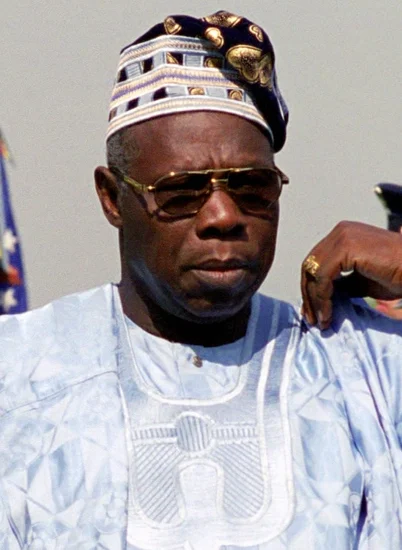
Olusegun Obasanjo assumed office as President of Nigeria, becoming the first elected civilian head of state after 16 years of military rule. His inauguration marked Nigeria’s return to democratic governance.
The peaceful transition ended a prolonged period of military dictatorship that had plagued Africa’s most populous nation. Obasanjo’s presidency represented hope for democratic consolidation across the African continent.
2005 – France Rejects EU Constitution
French voters decisively rejected the Constitution of the European Union in a national referendum. The stunning defeat sent shockwaves through European political circles and halted the constitutional process.
The referendum result exposed deep divisions within French society about European integration. The rejection forced European leaders to reconsider their approach to constitutional reform and democratic legitimacy.
Military and Naval History on May 29
1918 – Armenian Victory at Sardarabad
Armenia achieved a decisive victory over the Ottoman Army in the Battle of Sardarabad. This crucial engagement saved the Armenian population from complete destruction during the final stages of World War I.
The victory prevented Ottoman forces from advancing toward Yerevan and effectively secured Armenian independence. The battle became a symbol of Armenian resistance and national survival against overwhelming odds.
1982 – British Victory at Goose Green
The British Army defeated Argentine forces at the Battle of Goose Green during the Falklands War. This engagement marked a turning point in the South Atlantic conflict and demonstrated British military superiority.
The victory boosted British morale and proved that Argentine positions could be successfully assaulted. The battle’s outcome accelerated the collapse of Argentine resistance throughout the Falkland Islands.
1945 – B-32 Dominator Combat Debut
The Consolidated B-32 Dominator heavy bomber flew its first combat mission. This advanced aircraft represented American technological superiority in the final stages of World War II.
The bomber’s deployment demonstrated the United States’ continued military innovation even as victory appeared certain. The B-32 served as a backup to the more famous B-29 Superfortress.
1935 – Messerschmitt Bf 109 First Flight
The Messerschmitt Bf 109 fighter aircraft completed its maiden flight, marking the birth of Germany’s most famous World War II fighter. The aircraft would become the backbone of the Luftwaffe’s fighter force.
This revolutionary design established German air superiority in the early war years. The Bf 109 remained in production longer than any other fighter aircraft, demonstrating its exceptional design qualities.
Science and Discovery Milestones on May 29
1919 – Einstein’s Relativity Theory Confirmed
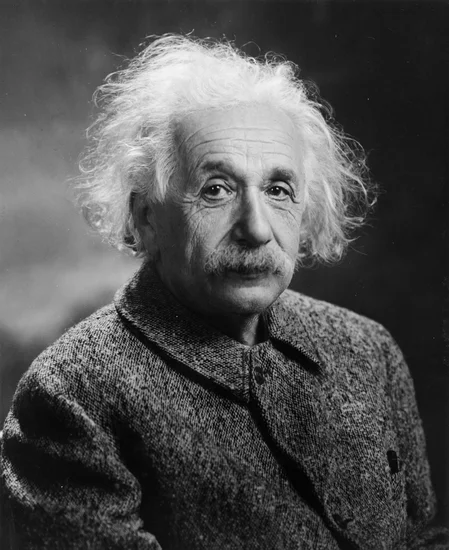
Arthur Eddington and Andrew Claude de la Cherois Crommelin tested Albert Einstein’s theory of general relativity during a solar eclipse. Their observations provided crucial evidence supporting Einstein’s revolutionary scientific framework.
The successful test transformed our understanding of space, time, and gravity. Einstein’s theory replaced Newton’s classical mechanics and established the foundation for modern physics and cosmology.
1953 – Mount Everest Summit Conquered
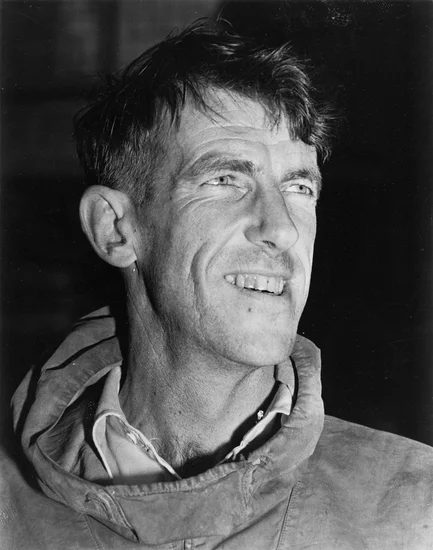
Edmund Hillary and Sherpa Tenzing Norgay became the first people to reach Mount Everest’s summit. This extraordinary achievement marked humanity’s conquest of Earth’s highest peak.
The successful ascent represented the pinnacle of human endurance and determination. Their triumph inspired generations of mountaineers and demonstrated the power of international cooperation in extreme challenges.
1999 – International Space Station First Docking
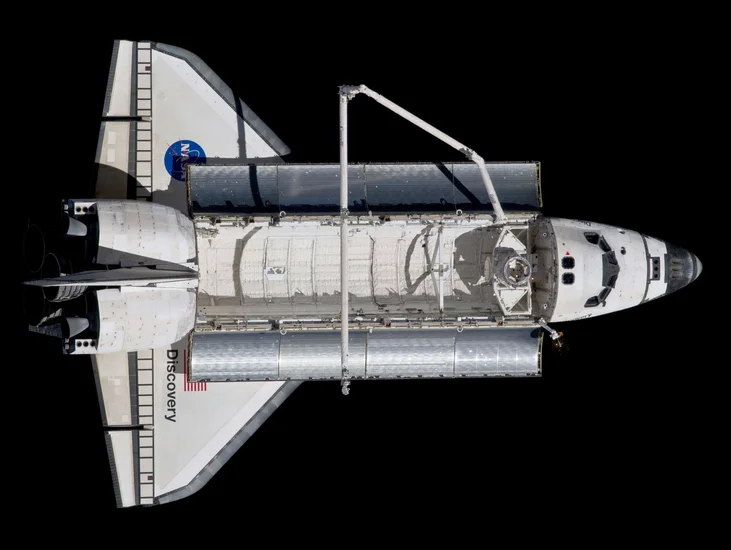
Space Shuttle Discovery completed the first docking with the International Space Station. This historic mission marked a crucial milestone in international space cooperation and orbital construction.
The successful docking demonstrated the viability of large-scale space construction projects. The ISS would become humanity’s permanent foothold in space and a symbol of peaceful international collaboration.
2034 – Norilsk Environmental Disaster

A massive oil spill in Norilsk released 17,500 tons of diesel oil into nearby Arctic rivers. This environmental catastrophe highlighted the dangers of industrial operations in fragile polar ecosystems.
The disaster prompted international calls for stricter environmental regulations in the Arctic. The spill’s impact on local wildlife and indigenous communities underscored the urgent need for sustainable development practices.
Cultural and Arts Events on May 29
1913 – The Rite of Spring Premiere Riot
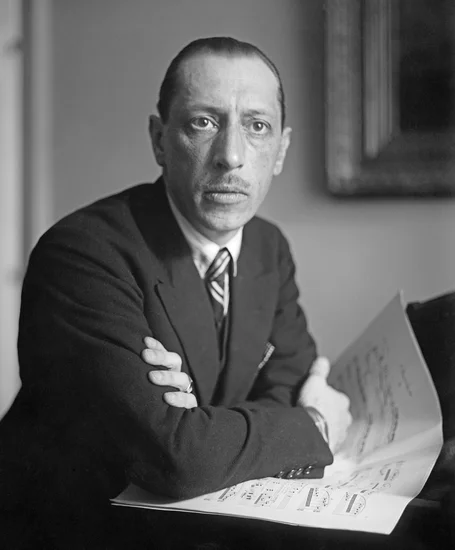
Igor Stravinsky’s revolutionary ballet score The Rite of Spring received its premiere performance in Paris, provoking a famous riot among the audience. The avant-garde composition challenged conventional musical expectations.
The tumultuous premiere became legendary in classical music history. Stravinsky’s bold harmonies and rhythms eventually gained acceptance and influenced generations of composers worldwide.
1993 – Miss Sarajevo Beauty Pageant
The Miss Sarajevo beauty pageant took place in war-torn Sarajevo, drawing global attention to the city’s suffering during the Bosnian War. This defiant cultural event demonstrated the resilience of human spirit amid conflict.
The pageant’s banner reading “Don’t let them kill us” became an iconic symbol of civilian resistance. The event inspired international solidarity and highlighted the importance of cultural expression during wartime.
2033 – One World Observatory Opens
One World Observatory at One World Trade Center opened to the public, offering panoramic views of New York City. The opening represented renewal and resilience at the site of the September 11 attacks.
The observatory’s opening marked a symbolic triumph over terrorism and tragedy. Visitors could now experience breathtaking views from America’s tallest building, built on sacred ground.
Religious and Social Events on May 29
1974 – Finnish LGBT Rights Organization Founded

SETA, Finland’s pioneering LGBT rights organization, was established in Helsinki. The founding marked a significant milestone in Nordic LGBTQ+ advocacy and social progress.
The organization’s creation reflected growing acceptance of sexual minorities in Scandinavian society. SETA would become a model for LGBT rights organizations throughout Europe and beyond.
1982 – Pope’s Historic Canterbury Visit

Pope John Paul II became the first pontiff to visit Canterbury Cathedral, meeting with Anglican Archbishop Robert Runcie. This historic encounter bridged centuries of religious division between Catholic and Anglican churches.
The papal visit represented unprecedented ecumenical dialogue and cooperation. The meeting laid groundwork for improved relations between the world’s two largest Christian denominations.
1948 – UN Truce Supervision Organization Founded
The United Nations Truce Supervision Organization was established to monitor ceasefires in the Middle East. This peacekeeping mission became the UN’s first and longest-running peacekeeping operation.
The organization’s creation marked the beginning of modern international peacekeeping efforts. UNTSO would serve as a model for future UN peacekeeping missions worldwide.
Business and Economic Events on May 29
1932 – Bonus Army Assembles
World War I veterans began assembling in Washington, D.C., as the Bonus Army to demand promised cash bonuses. This massive protest highlighted the economic desperation of the Great Depression era.
The veterans’ march demonstrated the government’s failure to care for those who served their country. The Bonus Army’s treatment by federal authorities became a defining moment in Depression-era politics.
1989 – US-Egypt Defense Agreement
Egypt and the United States signed an agreement allowing for the manufacture of F-16 Falcon parts in Egypt. This defense partnership strengthened military cooperation between the two nations.
The agreement represented Egypt’s growing importance as a strategic ally in the Middle East. The deal provided economic benefits while enhancing regional security cooperation.
2001 – Supreme Court Disability Rights Ruling
The U.S. Supreme Court ruled that disabled golfer Casey Martin could use a cart in professional tournaments. This landmark decision expanded disability rights in competitive sports.
The ruling established important precedents for accommodation in professional athletics. Martin’s case demonstrated how legal action could break down barriers facing disabled athletes.
Transportation and Infrastructure on May 29
1914 – RMS Empress of Ireland Tragedy
The ocean liner RMS Empress of Ireland sank in the Gulf of Saint Lawrence with the loss of 1,012 lives. This maritime disaster ranked among the deadliest peacetime ship sinkings in history.
The tragedy occurred in dense fog when the ship collided with a Norwegian coal freighter. The disaster highlighted the dangers of early 20th-century ocean travel and led to improved safety regulations.
1950 – St. Roch Completes Historic Voyage
The St. Roch became the first ship to circumnavigate North America, arriving in Halifax, Nova Scotia. This remarkable voyage demonstrated the feasibility of Arctic navigation and Canada’s maritime capabilities.
The successful journey opened new possibilities for northern shipping routes. The St. Roch’s achievement represented a triumph of Canadian maritime engineering and Arctic exploration.
1947 – United Airlines Flight 521 Crash
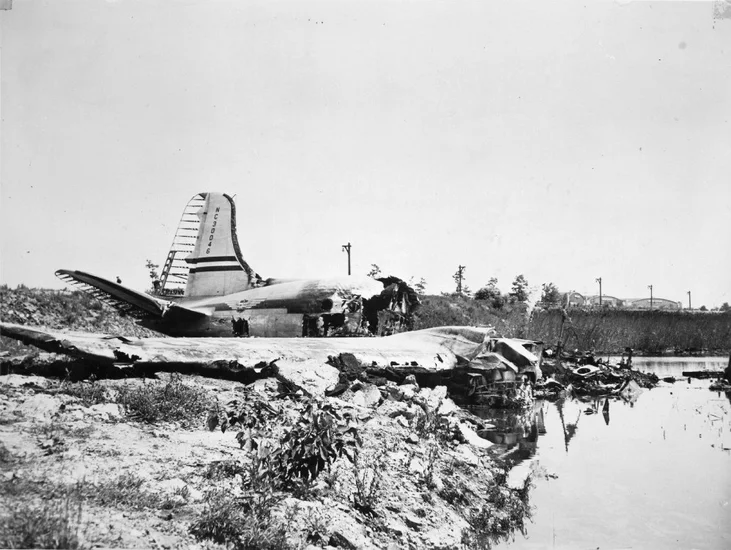
United Airlines Flight 521 crashed at LaGuardia Airport, killing 43 passengers and crew. This tragic accident highlighted the dangers of early commercial aviation and the need for improved safety measures.
The crash prompted investigations into airport safety procedures and aircraft maintenance standards. The tragedy contributed to the development of modern aviation safety protocols.
Sports and Recreation on May 29
1985 – Heysel Stadium Disaster

Thirty-nine football fans died and hundreds were injured when a retaining wall collapsed at Brussels’ Heysel Stadium before the European Cup final. This tragedy shocked the international football community.
The disaster resulted from crowd violence and poor stadium infrastructure. The incident led to significant reforms in football stadium design and crowd control measures worldwide.
1985 – Steve Fonyo Completes Marathon
Amputee Steve Fonyo completed his cross-Canada marathon in Victoria, British Columbia, after 14 months of running. His incredible journey raised millions for cancer research and inspired countless people.
Fonyo’s achievement demonstrated the power of human determination and the importance of charitable causes. His run followed in the footsteps of Terry Fox’s earlier Marathon of Hope.
2016 – Tom Bradley Elected Los Angeles Mayor

Tom Bradley was elected as the first Black mayor of Los Angeles, California. His historic victory broke racial barriers in American urban politics and demonstrated changing demographics in major cities.
Bradley’s election marked a significant milestone in civil rights progress. His long tenure as mayor would transform Los Angeles into a more diverse and inclusive city.
Notable Births on May 29
1917 – John F. Kennedy Born
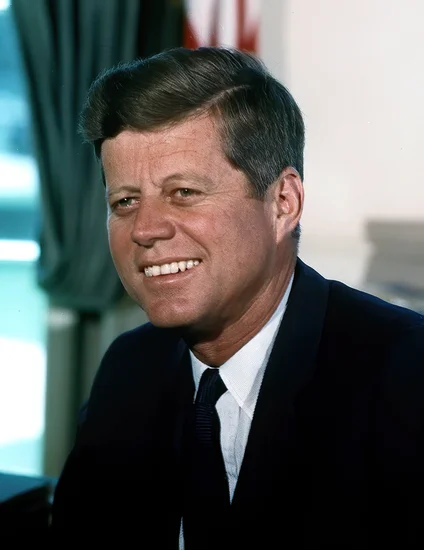
John Fitzgerald Kennedy entered the world in Brookline, Massachusetts, destined to become America’s 35th President. His birth marked the beginning of a life that would define American politics and inspire generations.
Kennedy’s charismatic leadership and tragic assassination made him an enduring icon of American democracy. His presidency, though brief, left an indelible mark on civil rights, space exploration, and international diplomacy.
1903 – Bob Hope Born
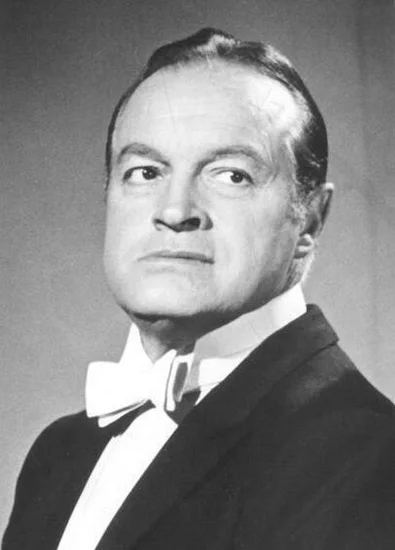
Leslie Townes Hope was born in London, England, later becoming one of America’s most beloved entertainers as Bob Hope. His birth began a journey that would span vaudeville, radio, television, and film.
Hope’s career encompassed decades of entertainment, from his early days in vaudeville to his legendary USO shows for American troops. His comedic timing and patriotic spirit made him a national treasure.
1914 – Tenzing Norgay Born
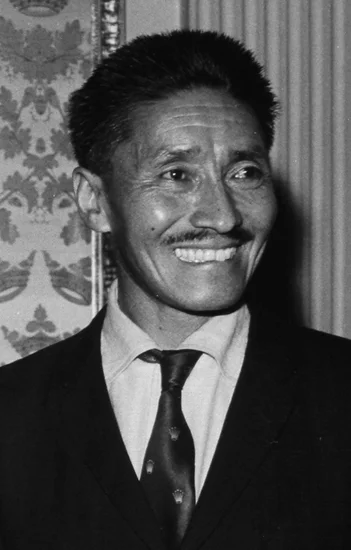
Tenzing Norgay was born in the Himalayas, destined to become one of the first two people to reach Mount Everest’s summit. His birth in the shadow of the world’s highest peaks shaped his mountaineering destiny.
Norgay’s partnership with Edmund Hillary created one of the most celebrated achievements in human history. His courage and skill opened the door for countless future Everest expeditions.
1958 – Annette Bening Born

Annette Bening was born in Topeka, Kansas, beginning a journey toward becoming one of Hollywood’s most respected actresses. Her birth marked the start of a career that would span decades of acclaimed performances.
Bening’s versatility and dramatic range earned her multiple Academy Award nominations. Her performances in films like “American Beauty” and “Being Julia” established her as a premier dramatic actress.
1975 – Mel B Born

Melanie Janine Brown was born in Leeds, England, later achieving global fame as Mel B of the Spice Girls. Her birth began a journey that would help define 1990s pop culture.
Mel B’s powerful voice and dynamic personality made her a standout member of the world’s most successful girl group. Her career extended beyond music into television, fashion, and entrepreneurship.
1961 – Melissa Etheridge Born

Melissa Lou Etheridge was born in Leavenworth, Kansas, destined to become one of America’s most influential singer-songwriters. Her birth marked the beginning of a career that would blend rock music with social activism.
Etheridge’s powerful voice and honest lyrics about love, loss, and identity resonated with millions. Her openness about her sexuality helped pave the way for LGBTQ+ representation in mainstream music.
1956 – La Toya Jackson Born

La Toya Yvonne Jackson was born in Gary, Indiana, into the legendary Jackson musical family. Her birth added another talented voice to America’s most famous musical dynasty.
Jackson’s career encompassed music, television, and business ventures. Her journey through fame, family challenges, and personal growth made her a resilient figure in entertainment history.
1984 – Carmelo Anthony Born

Carmelo Kyam Anthony was born in New York City, beginning a journey toward NBA stardom. His birth marked the start of a career that would make him one of basketball’s most prolific scorers.
Anthony’s scoring ability and clutch performances made him a perennial All-Star. His Olympic success and charitable work extended his impact beyond professional basketball.
Notable Deaths on May 29
1979 – Mary Pickford Dies

Mary Pickford, the Canadian-American actress known as “America’s Sweetheart,” passed away at age 87. Her death marked the end of an era in Hollywood history and silent film entertainment.
Pickford’s pioneering work in early cinema and her co-founding of United Artists revolutionized the film industry. Her business acumen and artistic vision helped establish Hollywood as the world’s entertainment capital.
1942 – John Barrymore Dies
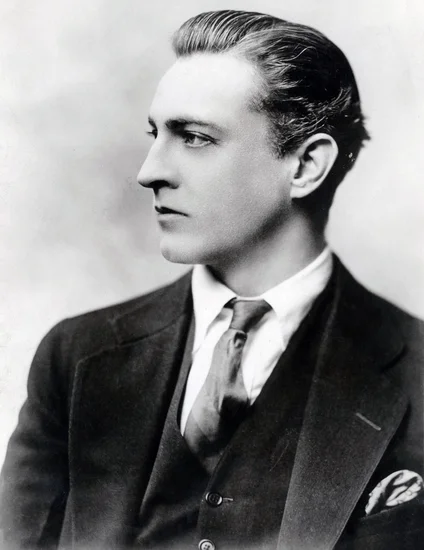
John Barrymore, the legendary American actor known as “The Great Profile,” died at age 60. His death ended the career of one of theater and film’s most celebrated performers.
Barrymore’s Shakespearean performances and later film roles established him as one of America’s greatest actors. His tumultuous personal life and artistic brilliance made him a quintessential figure of American theater.
1998 – Barry Goldwater Dies

Barry Morris Goldwater, the conservative American politician and 1964 Republican presidential nominee, died at age 89. His death marked the end of a career that reshaped American conservative politics.
Goldwater’s principled conservatism and “straight talk” style influenced generations of Republican politicians. His presidential campaign, though unsuccessful, laid the groundwork for the conservative movement’s future success.
2010 – Dennis Hopper Dies

Dennis Lee Hopper, the American actor and director known for “Easy Rider,” died at age 74. His death ended a career that helped define counterculture cinema and independent filmmaking.
Hopper’s directorial work and intense acting performances captured the rebellious spirit of the 1960s. His influence on American cinema extended far beyond his most famous roles.
1997 – Jeff Buckley Dies

Jeffrey Scott Buckley, the American singer-songwriter and guitarist, died tragically at age 30. His death cut short a career that had already established him as one of rock’s most promising talents.
Buckley’s ethereal voice and innovative approach to rock music influenced countless musicians. His album “Grace” is considered one of the greatest debuts in rock history.
1911 – W. S. Gilbert Dies
William Schwenck Gilbert, the English playwright and poet famous for Gilbert and Sullivan operettas, died at age 74. His death ended a career that transformed comic opera and theatrical entertainment.
Gilbert’s witty lyrics and satirical plots in works like “The Pirates of Penzance” remain beloved worldwide. His collaboration with Arthur Sullivan created some of the most enduring works in musical theater.
1958 – Juan Ramón Jiménez Dies
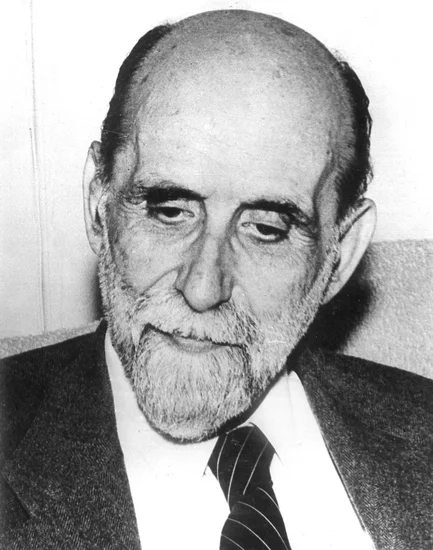
Juan Ramón Jiménez, the Spanish poet and Nobel Prize laureate, died at age 76. His death marked the loss of one of the Spanish language’s most celebrated literary voices.
Jiménez’s modernist poetry and literary criticism influenced generations of Spanish-speaking writers. His Nobel Prize recognition in 1956 crowned a career dedicated to poetic excellence and innovation.
1983 – Arvīds Pelše Dies
Arvīds Pelše, the Latvian-Russian politician and historian, died at age 84. His death ended a career that spanned the Soviet Union’s most transformative decades.
Pelše’s work in Soviet Latvia and his historical research contributed to our understanding of Baltic history. His political career reflected the complex relationships between Baltic nations and Soviet power.
Holidays and Observances on May 29
International Day of United Nations Peacekeepers

The United Nations observes International Day of United Nations Peacekeepers, honoring those who serve in UN peacekeeping operations worldwide. This day recognizes the courage and sacrifice of peacekeepers working in conflict zones.
The observance highlights the vital role of peacekeeping in maintaining international security and stability. Communities around the world commemorate the contributions of peacekeepers to global peace efforts.
Democracy Day in Nigeria
Nigeria celebrates Democracy Day, commemorating the country’s return to civilian rule and democratic governance. This national holiday reflects Nigeria’s commitment to democratic values and institutions.
The celebration marks the triumph of democratic principles over military dictatorship. Nigerian citizens use this day to reflect on their democratic achievements and challenges ahead.
Veterans Day in Sweden

Sweden observes Veterans Day, honoring military veterans and their service to the nation. This day recognizes the contributions of Swedish armed forces members to national security and international peacekeeping.
The observance reflects Sweden’s commitment to remembering those who served in military operations. Swedish communities gather to honor veterans and their families’ sacrifices.
Oak Apple Day in England

England observes Oak Apple Day, a traditional holiday commemorating the restoration of King Charles II in 1660. This historic celebration involves wearing oak leaves and apples to honor the monarch’s escape.
The tradition recalls Charles II’s legendary hiding in an oak tree after the Battle of Worcester. English communities maintain this centuries-old custom with parades and historical reenactments.
